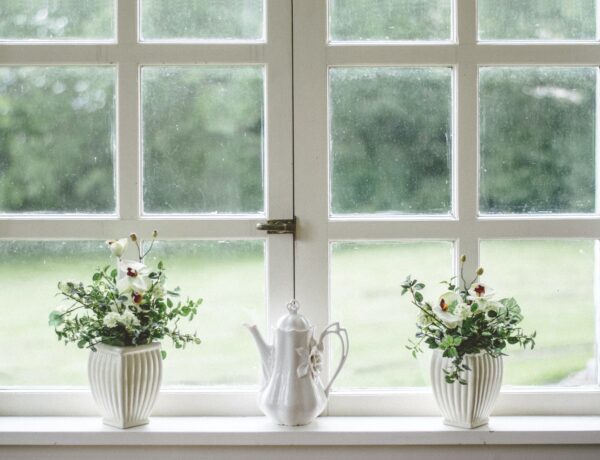Elle often wondered if the song they picked for their wedding dance – “At Last” by Etta James – was simply titled wrong. When she pondered the chronology of curious events leading to that dance, she ended with the sad realization that their wedding song should have been titled “Last Dance.”
Her memories leading up to their wedding, like the credit roll at the end of a movie, got a bit more detailed every time she ran it through her mind. She would add small snippets, fitting them in to the logical place in the linear view of their time together.
This much was clear to her – theirs was a relationship that was always meant to be – but never meant to be. Elle knew that didn’t make logical sense. Of all the things she was great at articulating, this was not one of them. In a world where minor chords are sad and bittersweet and major chords are happy, the score for Elle and Nat’s love story would have been written in a minor chord – although Nat argued that tempo was more a factor in sad and happy songs. What did she know anyway? He was the musician.
That first time they met, he had intrigued her. He was sitting at the side of the stage in the semi-darkness, so quiet and still in the midst of a rowdy crowd of country and western fans. He didn’t look uncomfortable, just out of place. She pictured herself flirting with him, saying something dumb like “Come here often?” when she already knew the answer. No one came here often. She was a seventeen-year old teenager, a military brat, living on an isolated army base and she knew everyone – and she did not recognize this intriguing stranger. She correctly decided that Mr. Intrigue was with the band, hired by the USO to entertain the troops and their families. Anyone who didn’t wear a uniform and have their hair cut short above their ears fascinated her.
He refused her invitation to dance so she invited herself to sit with him for the rest of the show. She was bold and brave. He was twenty-one, shy and self-conscious. They talked until four o’clock in the morning. The next time she saw him was forty years later.
In her retelling, their story started with Nat’s out of the blue, in-box message on LinkedIn two years ago – almost 40 years to the day that they first met. Eventually, she gets to the delicious memory of that one night at the Corporal’s Club on the base. Nat was no longer shy and self-conscious. Instead, she wore the mantle of self-consciousness and shyness. But it didn’t matter. They immediately struck up an on-line friendship, rediscovering their connection. Nat was married – to be expected. Elle was single – a fact that Nat could never wrap his head around. He often asked her about her past boyfriends, none of whom she cared to talk about.
He was a music producer now, with a love of Broadway musicals. She was an editor at The New Yorker with a love of art history. She still liked country and western music and he still loathed it. On the second day of their on-line relationship, he dedicated a song to her, telling her to look up the lyrics. The next day, she returned the favour. Soon, every song she heard had new meaning and she always found a way to relate it to their friendship. The dedicated songs grew more serious, with oblique references to love. Then Nat dedicated a song where England Dan and John Ford Coley were singing about how sad it was to belong to someone else when the right one comes along. Apparently, she was his ‘right one’.
Ten days into their on-line friendship, she was in love. Which was ridiculous on the face of it. People did not fall in love that quickly, especially with someone they had only spent eight hours with, forty years ago. And falling in love with a married man was a useless waste of perfectly good emotion that she should save for someone who could freely love her back. But there was no turning back once she loved him. Especially when he told her that the truth was, he wanted to dance with her that night forty years ago but he’d been too shy to accept her invitation.
Music made her cry now. On the subway she would burst into tears hearing Barbra Streisand and Blake Sheldon singing “I’d Want It To Be You.” Puccini’s opera scores would throw her into gut wrenching sobs. “Unforgettable” became her anthem because it was sung by Nat’s namesake. She had never liked Frank Sinatra but started to search out his songs for the schmaltzy, romantic crooning. When she told Nat about the crying, he worried that he had broken her.
Six months after reconnecting, she flew to Los Angeles to see him in person. She was nervous – cried on the plane but smiled when she saw him at the bottom of the escalator.
The irony of the love of her life appearing when she was three years short of turning sixty was not lost on her. Elle had always felt that she was skimming through life like a dragonfly over still lake water. Her contributions to the world around her had been minor. She often felt that she didn’t deserve Nat or his love or the attention he gave her. These days, in her linear way of thinking, she could see the end of her life just over the horizon. She worried. What if she only had twenty years left? Or five? The amount of time didn’t matter she’d remind herself, because she would still be alone. Nat couldn’t leave his wife, so she was sharing him.
Nat was always telling her she should write their story. Elle agreed that it was a story worth writing but one she didn’t want to put down on paper. So she jealously guarded it, holding it inside herself like a precious child, owning it. There was no one to share the story with anyway, because they had to keep it a secret. She believed that if she wrote it down, they’d be jinxed. But that changed shortly after that last dance on 30th Street when she felt free to tell it all.
Telling the story would record for eternity how broken her heart felt every day for two years. How she fell for a man who flirted with her, wooed her with song lyrics, who told her he had loved her for forty years. A man she couldn’t have. His heart was broken too and like Humpty-Dumpty, it was doubtful he could be put back together again. So they loved each other the best they could. Elle tried hard every day to hold it together. She thought about moving to Los Angeles to be nearer to him but thought it would be disastrous. Nat wanted that but she couldn’t bring herself to move. Late at night, deep under the covers she wondered why she was putting herself through the pain. She wondered who she had pissed off in a previous life. Whoever wrote the score to the movie about her pitiful life would have to write it in a minor key.
But every day the sun came up and as soon as daylight appeared, a small kernel of hope would awaken inside her. That hope kept her going most of the time. Nat was constantly harping on hope. But neither of them ever put into words to the other what hope really and truly looked like. Remaining hopeful for something intangible was like trying to understand why God was nice only once in a while.
The hope finally ran out on one of Nat’s visits. On those trips he stayed with her and they played at being husband and wife. During those short weeks, life felt like the way things were meant to be. They cooked together. Watched old musicals on the Turner Movie Network. Elle fell asleep every night with her head in his lap, feeling safe and comfortable, thinking that this was the way things were meant to be. Except when they’re not.
One spring morning, almost two years to the day that Nat sent her the message on LinkedIn, Elle woke up with no hope in her heart. The sun was up, Nat was sleeping soundly beside her, everything was as it should be, except something tangible and meaningful was missing. She didn’t know what it was so she laid awake for several minutes before she realized what was missing – the hope. Elle dug deep inside herself, reaching for the familiar feeling but she couldn’t find it. When she woke Nat to tell him his first words were “marry me.” Elle knew a true marriage was impossible but she agreed, knowing that a symbolic marriage should give her hope. After all, where was it written that a man and woman had to live together all the time to be happy?
Nat laid out plans for their ersatz wedding while he served her coffee in bed.
“We’ll write out our vows and visit the Little Church Around the Corner. We’ll let God be our witness and hear us say our vows.” Nat was excited and Elle tried hard to feel his enthusiasm. On the short walk around the block to the church, Nat held her hand. Elle was quiet and worried.
The small church felt welcoming and they walked slowly up the aisle and sat close together in the front pew. Nat took both her hands and solemnly and lovingly said words to her that weren’t a surprise. She knew how he felt. Elle loved him deeply.
But he did surprise her later when he admitted that his hope was gone too. They were dancing to Etta James singing “At Last,” the song Nat had declared a few minutes earlier would be their wedding song. Elle was surprised that she didn’t cry and wondered if it was because she was cried dry from two years of sobbing at the drop of a hat. This time when Nat left to go home, they truly said goodbye, knowing that the hope had run out.
That night, alone in the dark, she had a realization about all the crying she had done over the last two years. The tears flowed when she had hope. Hope for a future. Hope for a life together. But with the hope gone, the tears had dried up.



